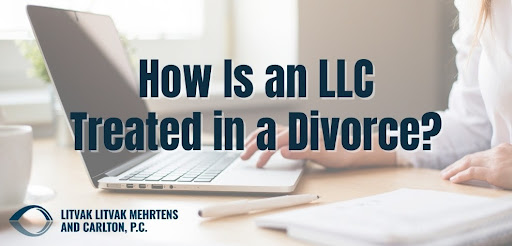There are a few primary assets that come to mind while going through a divorce, such as the marital house, bank account information, automobiles, and so on. While these are some of the most well-known assets, stock options are one that many people overlook. How exactly do you handle stocks and stock options in a divorce? Below, we cover how to split stocks in a divorce, as well as much more.
At Litvak Litvak Mehrtens and Carlton, our Denver divorce attorneys are well-versed in all things regarding high-asset divorce. We understand how frustrating and confusing the process can be. However, our experience and knowledge speak for us. If you need an attorney well-versed in how to split stocks in a divorce, we’re here for you. To arrange a consultation with us, please call 303-951-4506 or fill out our online intake form today.
Are Stocks Marital or Separate Property?
Colorado is a state that follows an equal distribution system. That is, assets are distributed in a fair manner, though not necessarily 50/50. Stock options that may be exercised up until the end of the marriage are frequently considered marital property in equitable division states. Those that aren’t exercisable throughout that time period are usually treated as distinct property.
The sort of compensation is also taken into account. If the stock options constitute remuneration for previous or current work—work that happened during the marriage—they are likely to be deemed marital property. If the stock options constitute pay for future labor, they may be considered distinct property if the work done to obtain the compensation occurs after the marriage ends.
How to Determine the Value of Stocks
In such situations, your lawyer will suggest that you hire a forensic accountant. A forensic accountant will make certain that you are aware of all assets held in your spouse’s name. They can help value stocks and stock options, as well as explain your best alternatives for achieving the equitable split you deserve. Splitting stocks that you currently own is difficult enough, but valuing and distributing stock options amid a divorce is much more difficult.
What Are Stock Options?
Derivatives are a sort of financial tool that include options. The value of an underlying security or asset is used to determine their worth. An asset in the case of stock options is shares of a company’s stock. The option is essentially a contract, a sale or purchase agreement between two parties. The option contract specifies the transaction date, which is generally a few months in the future, as well as the price.
What Is the Difference Between Vested and Unvested Stock Options?
You don’t acquire actual stock shares when you buy stock options. Rather, you’ll be given the option to exercise, or acquire, a certain number of shares at a specific price in the future. Vesting is a procedure that requires you to earn your options over time. Only vested stock options can be exercised. When you are qualified to execute a stock option, your rights become vested.
Let’s say you work at The Big Company. They award you stock options on 100 shares of their stock. Through the next five years, 25% of your options will vest every March 1st. On the next March 1st, you acquire the options, buying 20 of those shares at the stated price. Another year later, another 20 shares vest. Five years later, you are fully vested. Therefore, you can buy all 100 shares at once if you so desire.
Are Stock Options Divisible?
Certainly. The court will use its judgment in dividing your property depending on the facts of your situation, and stock options are not out of the question.
In Chen v. Chen (1987), the husband challenged the property partition award, claiming that a mistake had been made about his stock options, which could not be used until after the divorce. When the stock was liquidated, the court gave his wife half of the net earnings, whatever they were. The decision was upheld by the court of appeals.
Are Gifted Stocks Divisible?
When assessing whether separate or marital property exists, the court will take into account a number of factors. If the stock has not been transferred and is still registered in your name, it will almost certainly remain distinct property.
Whenever it relates to gifted assets, the person asserting the status of gifted property must furnish the court with convincing evidence that the item was indeed bestowed. If this is disputed, the challenging party must produce proof to the court proving that the property’s identity and character have not been maintained.
What Are Restricted Stock Units?
Employees get restricted stock units as a form of stock-based remuneration. RSUs, like stock options, are one of several methods in which an employer may give an employee a stake in the company’s success. RSUs incentivize employees to stay with the firm (until their shares vest) and help it perform effectively in order for their shares to appreciate in value.
Because RSU shares are limited to a vesting timeline depending on length of specific employment objectives, they are limited. It’s also possible that the ability to sell or trade the shares will be restricted. RSUs, unlike stock options, have no financial value until the employee’s vesting term is completed. If you or your spouse hold RSUs, asset splitting might be complicated.
In a divorce, unvested RSUs must be evaluated. RSU grants are considered property under divorce law. Therefore, unvested RSUs must be managed in the divorce process. Unvested RSUs may be regarded jointly held if not handled in the required documentation.
Because RSUs are non-transferable, a part of the stock may be transferred when the RSUs vest. Preparing a document that does this while also taking into account the tax implications necessitates experience and past knowledge. It is strongly recommended that you see a Denver divorce attorney with knowledge in this area to ensure that everything is done appropriately.
How to Split Stocks in a Divorce and Allocate the Assets
When it comes to dividing the stock shares you own jointly or the shares that one of you owns but are deemed joint marital property, you and your spouse have many alternatives. The following are some of your choices.
Selling the Stocks
Although it appears that selling the stocks and dividing the money is the simplest approach, many people would like to maintain their assets. Selling your stock might also have tax implications, which most individuals would like to avoid if at all feasible.
Splitting the Investments
The stock holdings of divorcing spouses might be divided for a fair division. One person can buy all of the stock in one firm while the other buys shares in another. You might also evenly divide the amount of stock shares. For example, you may both take 500 of the 1,000 shares of stock that are marital property to guarantee that you both receive your fair portion under Colorado’s equitable distribution laws. The split, like selling stocks, may have tax implications.
Alternative Methods
One person may have stock in their name, which they may have gotten as a work perk, but it is marital property. This is due to the fact that it was acquired throughout the marriage. When this happens, individuals may not want to sell or give the shares away, particularly if they are still employed by the firm.
They may be able to pay a monetary value for their spouse’s stake or provide them other assets in exchange for maintaining all stock shares if this happens. This approach necessitates first determining the worth of the stock holdings, which may necessitate the assistance of a financial professional or another specialist.
Contact a Colorado Divorce Attorney Today
If you face confusion about how to split stocks in a divorce, we’re here to help. At Litvak Litvak Mehrtens and Carlton, we handle a wide variety of divorce case types. That means our knowledge is as expansive as it is deep. No matter the specifics of your situation, we work hard to provide a favorable outcome for our clients. To speak with a qualified Denver family lawyer, please call 303-951-4506 or fill out our online intake form today.






